Bubbles in urine occur when unwanted matter present in the body gets eliminated via the urine. Bubbles in urine can arise due to simple causes such as increased outflow of urine or mild dehydration, or it may be due to the presence of some severe underlying disease.
Foamy urine is different from bubbles in urine. It may be noted that urine in the toilet bowl can appear foamy or frothy due to forceful urination, which is characterized by mixture of air with the eliminated urine. When such mixed urine hits the water in the toilet bowl it causes the urine to foam up. It is not a serious condition, but patients experiencing recurrent bouts of foamy urine should consult a doctor.
Whatever be the cause of bubbles in urine, it is vital for affected persons to visit a doctor for proper medical diagnosis. Your health care provider will offer the correct treatment options after finding out the underlying cause.
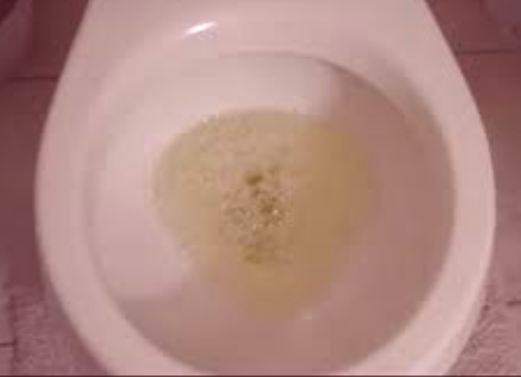
Causes of bubbles in urine
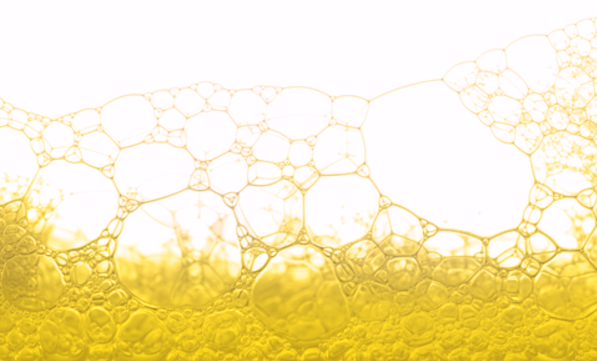
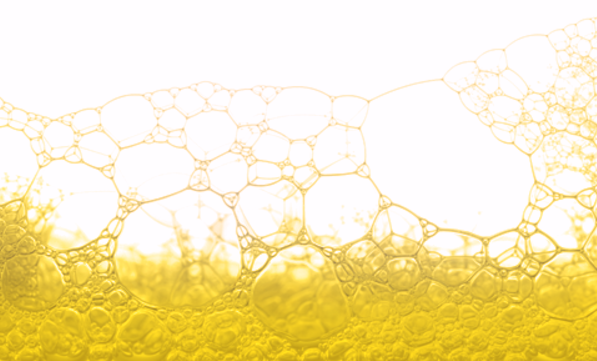
Discussed below are a few common causes of bubbles in urine along with the related causes, symptoms, and treatment.
- Proteinuria
- Occurrence of protein in urine is termed as proteinuria. It can cause bubbles in urine. Healthy humans usually pass urine with minimal amounts of protein in it. When large quantities of protein occur in urine then it can be an indication of some underlying disease. Excess protein in urine can be checked via a urinalysis or a urine test.
- A part of the kidneys called the glomeruli manage the passage of protein in urine. The glomeruli can get injured or inflamed due to certain health abnormalities, thereby allowing increased outflow of protein during urination. After hitting the toilet bowl, the excessive proteins present in urine react with the air and cause visible bubbles in urine.
- Patients may also experience swelling of the feet, face, hands, and other body parts. Proteinuria needs to be evaluated by a doctor who will then provide relevant treatments.
- Vesicocolic Fistula
- A fistula refers to an unnatural connection between 2 cavities in the body. A vesicocolic fistula is an abnormal connection between the colon and bladder. Underlying tumors or Crohn’s disease are some of its common causes. In vesicocolic fistula, the lower end of the bladder experiences swelling and buildup of fluids beneath the skin. Bubbles may form in these fluids which then get removed from the body as bubbles in urine.
- Patients have to consult a doctor for evaluation and treatment.
- Pregnancy
- Some women may experience kidney enlargement during pregnancy. This can cause the glomeruli to become more permeable, thereby allowing passing of increased levels of protein into urine, eventually resulting in bubbles in urine.
- Proteinuria during pregnancy is considered a serious medical condition. Hence, patients need to immediately consult a doctor.
- Mild dehydration
- Dehydration causes the urine to become excessively concentrated which can then result in bubbles in urine. Dehydration can arise due to varied causes including prolonged exposure to heat and humidity, strenuous exercising, and low intake of water, etc.
- Mildly dehydrated individuals may also experience headaches, fatigue, oral dryness, and reduced urine output.
- Minor dehydration can be prevented by drinking a minimum of 8 glasses of water on a daily basis, avoiding excessive sweating, and guarding oneself against unnecessary loss of liquids from the body.
- Menstruation
- Loss of fluids during menstrual cycles can cause minor dehydration leading to bubbles in urine. Follow above listed precautions to avoid dehydration.
- Urinary Tract Infection
- Another main cause of bubbles in urine is a UTI or a urinary tract infection. The urethra, kidneys, ureters, and the bladder are some components of the urinary tract. Healthy people usually do not have any pathogens or infections in their urinary tract. The passing of bacteria and other germs into the urinary tract via the bloodstream or the urethra is what causes a UTI. Bubbles in urine are caused due to mixture of gas released by the pathogens into the urine.
- People suffering from a UTI will elicit varied symptoms such as pain and burning sensations when passing urine, foul-smelling urine, and urge to urinate frequently particularly at night.
- Most cases of UTIs are treated with different antibiotics. Accompanying pain can be reduced with pain medications. Lots of bed rest and keeping the body hydrated are also advised by doctors.
- Kidney problems
- Kidneys perform the important function of filtering urine. Therefore, any kind of kidney problem, disease, or infection can result in its dysfunction, which in turn can cause passing of protein into urine. As mentioned above, presence of protein in urine can cause bubbles in urine.
- Decreased kidney function can prevent the organ from making concentrated urine. Affected people will therefore experience increased urge to urinate frequently. Individuals with kidney anomalies may also experience varied symptoms such as pain in the flanks, hypertension, lack of appetite, and fatigue, etc.
- Most kinds of kidney disorders and diseases are treated with medicines. Severe cases of kidney stones may require surgery.

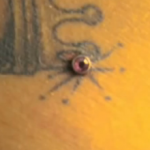
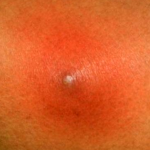
How does one tell the difference between foamy urine and bubbles in the urine. They seem to look identical. Can you elaborate on this more clearly? Thanks